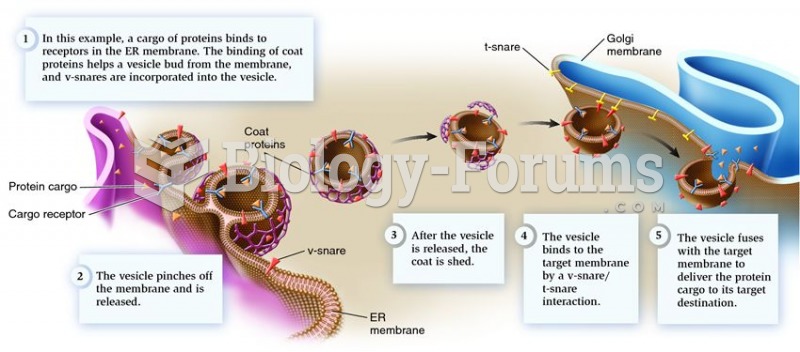This topic contains a solution. Click here to go to the answer
|
|
|
Did you know?
Thyroid conditions may make getting pregnant impossible.
Did you know?
The heart is located in the center of the chest, with part of it tipped slightly so that it taps against the left side of the chest.
Did you know?
More than 2,500 barbiturates have been synthesized. At the height of their popularity, about 50 were marketed for human use.
Did you know?
In inpatient settings, adverse drug events account for an estimated one in three of all hospital adverse events. They affect approximately 2 million hospital stays every year, and prolong hospital stays by between one and five days.
Did you know?
About 600,000 particles of skin are shed every hour by each human. If you live to age 70 years, you have shed 105 pounds of dead skin.
 Second step in cotranslational protein localization: vesicle transport from the endoplasmic reticulu
Second step in cotranslational protein localization: vesicle transport from the endoplasmic reticulu
 The “Big Four” world leaders meet at the Hotel Crillon in Paris, 1919. From left to right (front row
The “Big Four” world leaders meet at the Hotel Crillon in Paris, 1919. From left to right (front row
 The first step in the reprogramming procedure is to determine the current software installed using a ...
The first step in the reprogramming procedure is to determine the current software installed using a ...




